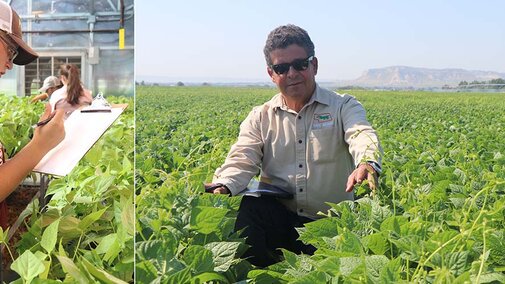Results of the 2021 variety trials for dry edible beans conducted by the University of Nebraska Panhandle Research and Extension Center are now available online.
Variety trial results for dry beans (as well as other crops such as field pea, millet, sunflowers and oats) can be found at this link. Or, navigate to the Other Crops Variety Trials page from CropWatch by clicking on these links: management > variety testing > other crops.
Results for the most recent three years are listed on that page. In addition, older variety trial results are archived on a separate page which is linked to the current variety-trial page.
Nebraska’s dry edible bean variety trials have been operated for 40 years as a service to the dry bean industry to evaluate which dry bean varieties and experimental lines are best suited for western Nebraska. The 2021 trials were planted at two locations, the Scottsbluff Ag Lab at the Panhandle Research and Extension Center (June 3), and the Mitchell Ag Lab, five miles to the north (June 2). UNL staff under the direction of Dry Bean Breeding Specialist Carlos Urrea did the planting, fieldwork, harvest and analysis of results.
The dry bean report includes a description and summary of the trials, and tables that list yield adjusted at 14% moisture, test weight and other data for each variety within the market classes. In addition, the report includes detailed information about plot management, such as planting dates, seeding rates, herbicide treatments, row width, irrigation and harvest dates.
A total of 10 trials were conducted at the two locations: two plots each of Great Northern (20 entries), pinto (40 entries), light red kidney (15 entries), black beans (14), and navy (12).
Results were compiled by Urrea. He also acknowledged Panhandle Center Farm Manager Gene Kizzire and his team and the summer crew for help with agronomic management, and thanked the Nebraska Dry Bean Commission for its financial support.
In addition to the website, the report will be published in the Bean Bag newsletter published by the Nebraska Dry Bean Growers Association.

